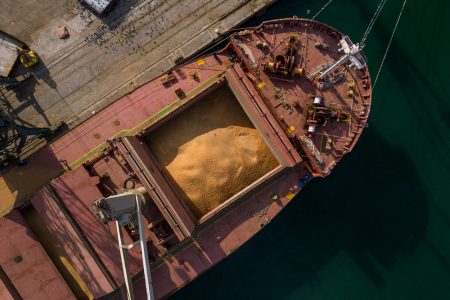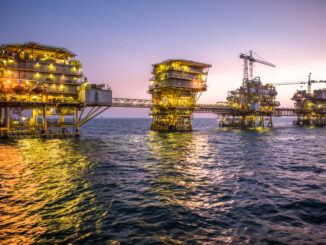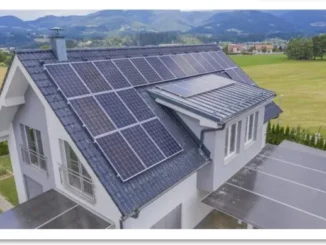
The European Commission proposed to increase tariffs on Russian and Belarusian grains and oilseeds imports to prevent the destabilisation of the EU market, the funding of Russian aggression against Ukraine, and to try to defuse the protests on the Ukrainian-Polish border.
The measure has been called on for months by Baltic states, and more recently supported by the Czech Republic and Poland, where the blockades at the Ukrainian borders have been going on for months.
Kyiv supports the initiative. “Russian access to the European agricultural market is still unrestricted,” Ukraine President Volodymyr Zelenskyy told EU leaders meeting in Brussels on 21-22 March.
“When Ukrainian grain is thrown on the roads or railway tracks,” as it happened in Poland, “Russian products are still being transported into Europe” and “this is not fair” he added.
The measure will not affect commodities in transit, maintaining “our commitment to preserving global food security, especially for developing countries,” the president of the European Commission Ursula von der Leyen said in a press release.
The proposal is expected to be adopted by the EU Council, with a qualified majority.
Depending on the specific product, the Commission wants to increase tariffs to either €95 per tonne, or 50% on the value of cereals, oilseeds, and derived products. Most of them (for example maize, durum wheat, and oilseeds) currently benefit zero or near-zero duties.
The tariffs “are designed to be high enough to discourage current imports” from Russia and Belarus, Commission officials told Euractiv.
Between July 2023 and January 2024, Russian cereal imports into the EU increased, each monthly import higher than the five-year average for the comparable month.
Low expected impact on market and prices
The proposal on tariffs will have no “major impact” on the EU market, Commission officials told Euractiv. This means that the initiative will do little to eliminate one of the main causes of the protests against Ukrainian imports – the level of cereal prices, the lowest since 2020.
A European Parliament call to activate public purchasing of grains to withdraw them from the market has not been included, as “costs would likely be prohibitive” if large quantities were bought said Commission officials.
They also pointed out that it would not have a significant impact on the markets, nor on farmer incomes, if quantities were small.
To put things into perspective, in 2023 the EU imported only 1.5 million tonnes of cereals from Russia, a very small portion of the overhaul total of 272 million tonnes of cereals the EU produced the same year – according to the European Commission data portal.
The biggest importing member states of Russian cereals, in the last seven months were Italy (over 423,000 tons, most of it durum wheat), Latvia (263,000, mainly maize), and Spain (237,000).
Stalemate on Ukraine trade benefits
The proposal might contribute towards unlocking the stalemate in the Council on the renewal of the temporary Ukraine trade benefits.
“It should help, but it is not sure it will be sufficient,” an EU diplomat told Euractiv.
On 20 March, the Parliament and the Council agreed to renew for a year more, the temporary suspension of tariffs and duties for goods coming from Kyiv.
The Parliament approved the deal, but France and Poland led a group of states to postpone the decision in Council.
Among the reasons given for this stance, was that the agreement did not include cereals in the list of the EU sensitive sectors, shielded from the impact of excessive Ukrainian imports.
The tariffs on food commodities from Russia and Belarus “should indeed logically help,” to break the stalemate said the diplomat.
But they cautioned that “the issue has become so political that it is difficult to know what will happen exactly.”
“We are not far from an agreement,” said French President Emmanuel Macron at the EU leaders summit on 22 March.
In the conclusions of the 21-22 March summit, leaders suggested that the trade relations between the bloc and Ukraine must be fixed through a new permanent agreement.



